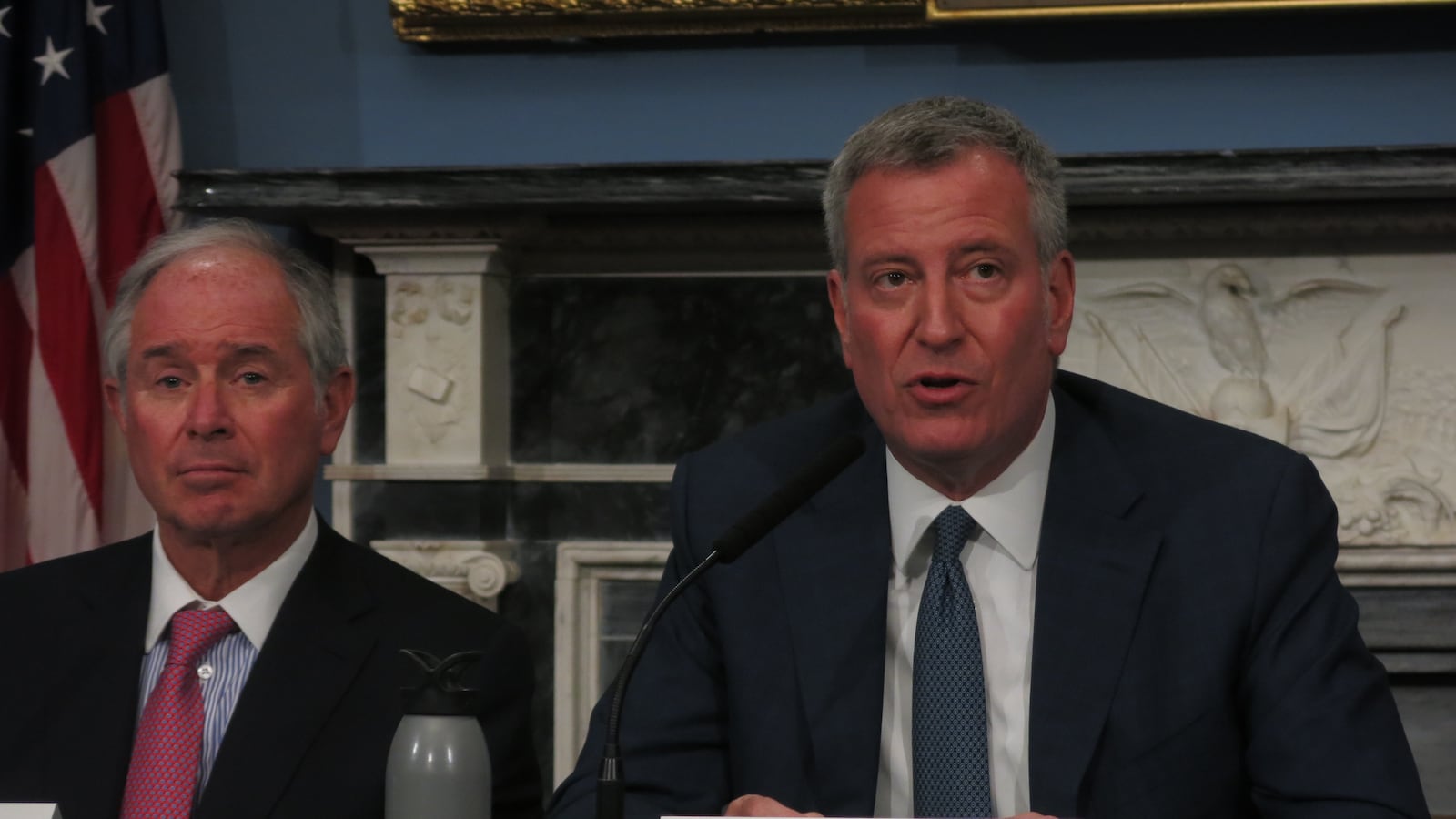In the ongoing tussle over school governance in New York City, Mayor Bill de Blasio offered a compromise Wednesday — and said he was resting his case.
The mayor reduced his request from seven years of continued control to three, the amount the Democrat-controlled state Assembly voted in favor of this week. But he also announced on Wednesday that he would not attend the second scheduled mayoral control hearing on Thursday, backing out of a long-scheduled event and drawing the ire of Senate Republicans who will vote on any extension.
In a press conference Wednesday afternoon, de Blasio defended his education record alongside prominent New York City business leaders who urged state lawmakers to renew the mayoral control law. De Blasio also pointed out that he already sat for one lengthy Senate hearing on mayoral control earlier this month.
“I think to go to Albany and spend four hours answering any and all questions, literally every single question that was offered, I think that was a great show of respect and we covered the subject matter well,” he said.
Still, his decision to skip the second hearing immediately drew criticism from Senate Republicans, who stand in the way of a long-term extension and others who are wary of de Blasio’s education agenda.
The most powerful member of the state Senate, Majority Leader John Flanagan, sent out a swift response saying he is “extremely disappointed” by de Blasio’s decision. Flanagan, a Republican who formerly headed the Senate education committee, also criticized de Blasio when he did testify at a state hearing on the issue two weeks ago, calling his knowledge of city schools “disturbing.”
The current chair or the Senate education committee, Republican Carl Marcellino, was also “disappointed” that the mayor will not attend the second hearing, according to a statement from his office.
Several advocacy groups opposed to de Blasio’s education policies joined the fray Wednesday, and planned to rally outside Thursday’s hearing.
“Mayoral control was put in place to bring accountability to public education, not to allow City Hall to escape scrutiny,” said Jenny Sedlis, the executive director of StudentsFirstNY, a pro-charter school group that has frequently battled with de Blasio. “The mayor wants the authority without taking responsibility for his failed education record.”
Even de Blasio’s allies questioned his decision to miss the hearing.
Assembly Education Committee Chair Catherine Nolan said she thinks is it “outrageous” that the Senate would expect him to testify again. Still, she said:“If I were the mayor, I would have went.”
De Blasio’s move ensures a bumpy ride over the next few weeks as the state legislature decides whether to extend mayoral control and, if so, for how long. The back-and-forth between de Blasio and state lawmakers has been underway since last year, when the mayor asked for a permanent extension of mayoral control and got one year instead.
People on both sides of the debate tend to agree that mayoral control is an improvement over the previous system of many local school boards, and that de Blasio is likely to get an extension. De Blasio often argues that mayoral control has allowed him to tackle big projects, like universal prekindergarten, and that it makes him accountable for progress in city schools.
However, his adversaries in Albany also realize signing off on a long-term extension would mean sacrificing a political bargaining chip.
The Assembly passed a bill on Tuesday extending mayoral control for three years. Over 100 business executives also signed a letter to lawmakers asking for a long-term extension, and many of those appeared with de Blasio at City Hall today.
“There is no justification for exposing more than a million students to the turmoil that would result from the expiration of a system that has served the city well,” the letter reads.

